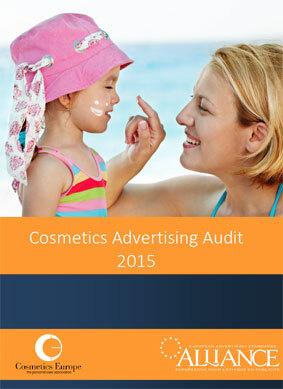Some of the newest trends in product development come from advances in cutting-edge science. For example, in skin care, stem-cell research is helping address skin at the molecular level to provide epidermal DNA protection; and in oral care, our latest understanding of plaque as a three-dimensional biofilm is enabling development of a new generation of oral hygiene products to fight dental plaque. These examples are just the tip of the iceberg. To ensure the optimal environment for cutting edge science to thrive, we continue to support risk over hazard-based assessments of safety.
For more than 20 years, the cosmetics industry’s best scientists and its strategic partners have been dedicated to supporting the development, validation and/or regulatory acceptance of alternative test methods and approaches to animal testing. The development and validation of alternative methods by regulatory bodies is a constant and long-term effort that must be positively sustained. We are continuing our collaboration into alternatives with the European Commission and other partners under the Horizon 2020 programme. The Cosmetics Europe Long Range Science Strategy (LRSS) Research Programme (2016-2020) and the EU-funded collaborative project entitled EU-ToxRisk, where Cosmetics Europe is a partner, will both seek to develop new concepts for regulatory chemical safety assessment with a focus on systemic toxicity.
Given the complexity of our industry, and the difficulties inherent in regulating every advance, our industry must embrace responsible co and self-regulation in order to continue to be a vibrant industry that brings economic stability and growth to the EU. In this respect, the cosmetics industry has been commended by the European Commission for its effective self-regulation in the area of advertising. Based on the latest audit conducted by the European Advertising Standards Alliance (EASA) in 2014/15, 91% of our industry’s ads were in compliance with all relevant advertising codes/laws, in large part due to the successful application of the Cosmetics Europe Charter and Guiding Principles on responsible advertising and marketing communication. Further developments in this space await us. Beyond self-regulation, we expect to be a key stakeholder for the first amendments of the Cosmetics Regulation at some point in the near future.
We will continue to deepen and broaden our dialogue to develop partnerships for change to enable policy and regulatory solutions for our industry to adapt and flourish in a changing world, in particular around five core areas:
- Upholding scientific, risk-based, consumer safety regulation.
- Ensuring an enabling framework for innovation embedding the “Innovation Principle” in policy making.
- Supporting freedom to pursue economic activity best suited to business models in an omnichannel trading environment.
- Driving international regulatory convergence towards a harmonisation of cosmetics regulations, on the basis of best practices.
- Promoting sustainable consumption and best sustainable business practices.
If you want to know more about our Partnership for Change – please see our paper entitled Partnership for Change
